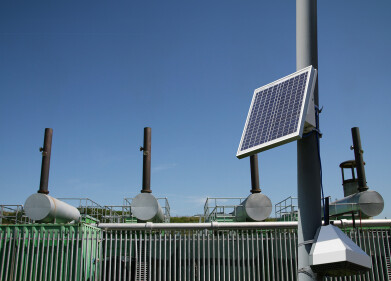Measurement and Testing
What Effect Will BP Have on India?
Oct 11 2016
Oil giants BP (British Petroleum) have been granted a licence to set up petrol pumps across India. It’s big news for the British-based company, who will become the second largest foreign oil supplier for India. The decision was made by the Indian government, but why did they make it? Will it be beneficial for India – or was it just something they had to concede, with a growing demand for oil?
India’s growth
The fastest growing economy in the world, India has seen a vast growth in its middle class of late. This means more people earning higher wages and consequently more people driving cars. With 14% estimated growth in oil demand, India is now the third largest oil consumer in the world.
Their state run refineries, that currently produce over 90% of the country’s oil, simply cannot keep up with the growth, and so they’re turning to foreign providers. So far, the main foreign involvement comes from Dutch firm Shell, who own less than a hundred sites across India.
Two-way stream
This growth is also part of the reason it is more appealing to BP. To encourage big companies to move to the country, India’s government have removed caps on the price of petrol and diesel over the past few years. Previously they were controlled by the state which meant it was less attractive for the big companies in terms of profit. But now, with the substantial growth in demand, they have almost been forced to change.
Permission has initially been granted for up to 3,500 stations across the country. If the move proves to be beneficial for both parties, however, BP could be granted a licence for further developments. One benefit for India is that BP’s involvement will allow them to continue to grow economically. Their current economic growth is thought to be around 8% a year so of course they want to do everything they can to sustain it.
Oil development
A developing country relying on oil to fuel their growth is hardly promising for green energy. But does it need to be one or the other? ‘Can fossil fuels and green energy work hand-in-hand?’ features an interview with Professor Dr. Gioia Falcone, Head of the Oil and Gas Engineering Centre at Cranfield University. His developments in petroleum engineering could open up an interface that allows renewable energy to work alongside oil and gas.
Image Credit: Wikimedia Commons
Digital Edition
PIN 25.5 Oct/Nov 2024
November 2024
Analytical Instrumentation - Picturing Viscosity – How Can a Viscometer or a Rheometer Benefit You? - Sustainable Grease Formulations: Evaluating Key Performance Parameters and Testing Method...
View all digital editions
Events
Dec 03 2024 Dusseldorf, Germany
Dec 08 2024 Anaheim, CA, USA
Turkey & Black Sea Oil and Gas
Dec 11 2024 Istanbul, Turkey
Dec 19 2024 Aurangabad, India
Jan 20 2025 San Diego, CA, USA



















